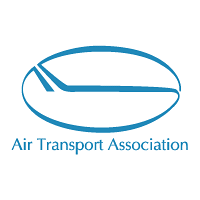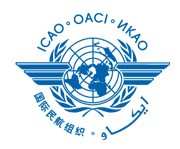But The Air Transport Association Joins Others Welcoming
Climate Change Initiative
 The Air Transport Association of American (ATA) on Monday was
among those praising the ICAO 37th Assembly resolution on climate
change, but they weren't entirely happy with the outcome of the
session. The airline trade organization expressed deep
disappointment in the decision by the European States to "reserve"
on the aspects of the ICAO Assembly Resolution that reconfirm that
countries may impose emissions trading or other market-based
measures on the airlines of other countries only through agreement
and in accordance with treaty requirements and ICAO principles.
The Air Transport Association of American (ATA) on Monday was
among those praising the ICAO 37th Assembly resolution on climate
change, but they weren't entirely happy with the outcome of the
session. The airline trade organization expressed deep
disappointment in the decision by the European States to "reserve"
on the aspects of the ICAO Assembly Resolution that reconfirm that
countries may impose emissions trading or other market-based
measures on the airlines of other countries only through agreement
and in accordance with treaty requirements and ICAO principles.
"Unfortunately, despite the tremendous step forward in cementing
the international framework, the European States indicated their
intent to continue to unilaterally impose their ETS and other
measures on airlines from other countries, contrary to the will of
all other States and contrary to international law," said May. "We
had hoped that an agreement at ICAO would obviate the need for our
legal challenge to the application of the EU ETS to our airlines;
the European's resolve to ignore international law and key aspects
of the new ICAO Assembly Resolution only strengthens our resolve to
fight in favor of them."
ATA applauded the ICAO's adoption of a new set of provisions in
its comprehensive plan for further addressing greenhouse gas
emissions from international aviation.
Included in an Assembly Resolution from the recently concluded
triennial meeting of the United Nations body are goals for aviation
to achieve a 2 percent annual average fuel-efficiency improvement
through 2020, and to cap or offset the growth of carbon dioxide
(CO2) emissions beyond 2020, as well as additional framework
details on emissions-reducing measures.
 "ICAO's action in setting aggressive, forward-looking goals for
aviation CO2 emissions and key principles in an international
framework further affirms its strong leadership on environmental
issues involving international aviation," said ATA President and
CEO James C. May. "While meeting these goals will be challenging,
we are especially pleased that the ICAO States recognized the
importance of industry and government work on airframe and
aircraft-engine breakthroughs, the development and deployment of
sustainable alternative aviation fuels, modernization of the air
traffic control systems and other operational and infrastructure
improvements as the core measures for continuing to reduce aviation
greenhouse gas emissions."
"ICAO's action in setting aggressive, forward-looking goals for
aviation CO2 emissions and key principles in an international
framework further affirms its strong leadership on environmental
issues involving international aviation," said ATA President and
CEO James C. May. "While meeting these goals will be challenging,
we are especially pleased that the ICAO States recognized the
importance of industry and government work on airframe and
aircraft-engine breakthroughs, the development and deployment of
sustainable alternative aviation fuels, modernization of the air
traffic control systems and other operational and infrastructure
improvements as the core measures for continuing to reduce aviation
greenhouse gas emissions."
May added that ICAO actions add benefits on top of the already
exemplary fuel- and carbon-efficiency record of the U.S. commercial
airlines. "The U.S. airlines have improved their fuel efficiency by
110 percent since 1978, resulting in commensurate reductions of CO2
and other greenhouse gas emissions," said May. "Although aviation
accounts for only 2 percent of man-made CO2, we are committed to
continuing to reduce our greenhouse gas footprint. This global
industry needs an internationally agreed-upon framework. Otherwise,
overlapping and conflicting requirements from different States will
undercut our efforts."
ATA was part of the united aviation industry coalition that
promoted the adoption by ICAO of aggressive CO2 goals for the
future under an international framework on aviation and climate
change.
May applauded the ICAO adoption of additional guiding principles
on market-based measures. "While many of the principles are a
matter of common sense, for example, stating that market-based
measures should not be duplicative and should be 'cost-effective'
and 'minimize market distortions,' it has become clear that ICAO
must be overt about them," said May. "ATA and its member carriers
have been greatly concerned about measures such as the European
Emissions Trading Scheme (EU ETS) and the proliferation of
emissions levies in the United Kingdom, Germany and elsewhere that
run afoul of these principles."
 ANN's Daily Aero-Term (04.20.24): Light Gun
ANN's Daily Aero-Term (04.20.24): Light Gun Aero-News: Quote of the Day (04.20.24)
Aero-News: Quote of the Day (04.20.24) ANN's Daily Aero-Linx (04.21.24)
ANN's Daily Aero-Linx (04.21.24) Aero-News: Quote of the Day (04.21.24)
Aero-News: Quote of the Day (04.21.24) ANN's Daily Aero-Term (04.21.24): Aircraft Conflict
ANN's Daily Aero-Term (04.21.24): Aircraft Conflict




